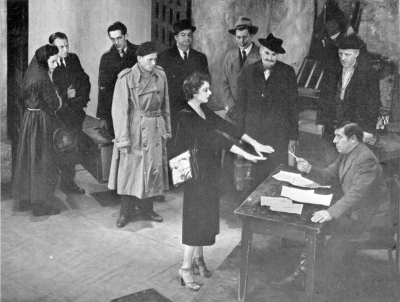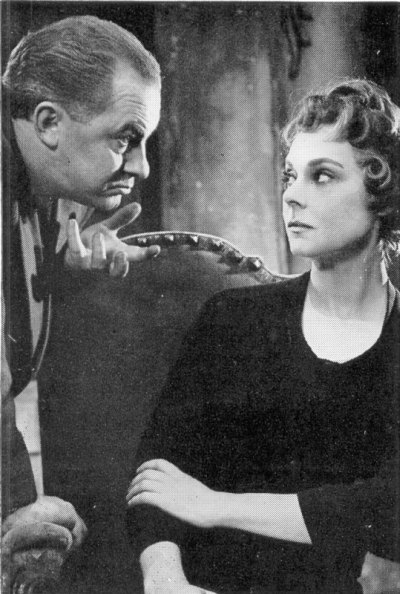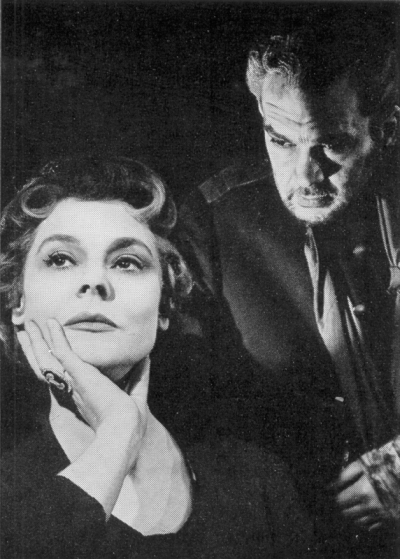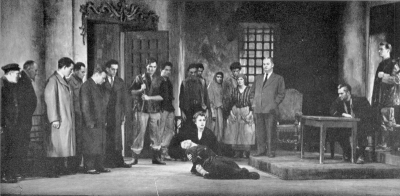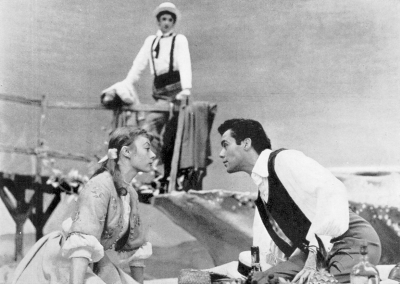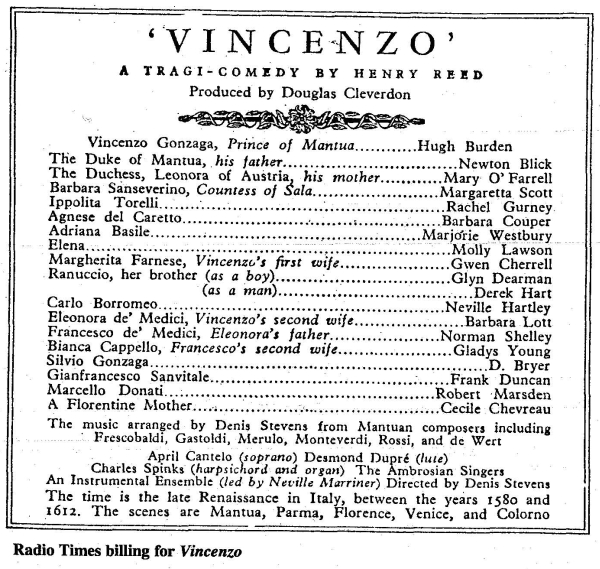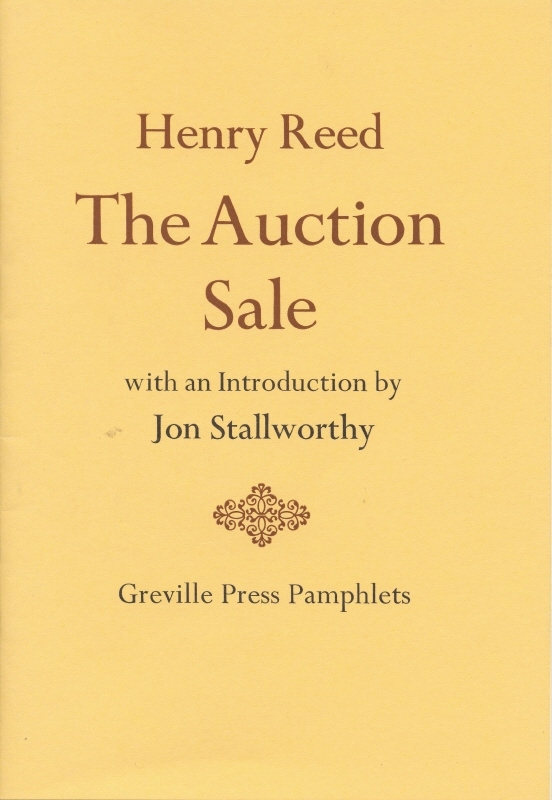|
|
Documenting the quest to track down everything written by
(and written about) the poet, translator, critic, and radio
dramatist, Henry Reed.
An obsessive, armchair attempt to assemble a comprehensive
bibliography, not just for the work of a poet, but for his
entire life.
Read " Naming of Parts."
|
Contact:
|
|
|
|
Reeding:
|
 |
I Capture the Castle: A girl and her family struggle to make ends meet in an old English castle.
|
 |
Dusty Answer: Young, privileged, earnest Judith falls in love with the family next door.
|
 |
The Heat of the Day: In wartime London, a woman finds herself caught between two men.
|
|
|
|
Elsewhere:
|
|
Posts from March 2007
|
|
|
27.4.2024
|
I reached a minor milestone this past weekend: I closeted myself in the library, and labeled and stuffed nearly 150 manila envelopes with the last of the photocopies from the original plastic filebox, as well as most of the printouts and copies I've made since making the decision to go Noguchi. Now, all I need to do is spend four or five hours double-checking that all the items in these envelopes are actually in the bibliography, and then I can file them in the bookcase. Progress! The tide is turning.
But no matter how much I file away, new items are still emerging, including this fascinating item. In Victoria Glendenning's biography of Elizabeth Bowen (New York: Knopf, 1978), there is this possibly scandalous revelation:
As to reviewing, which she always did a great deal of, she was ambivalent. She was a notoriously kind reviewer of novels; she preferred not to write about a book she could not praise, and was known in the business as a very soft touch. But "it is a perfectly awful business", she wrote to Virginia Woolf about The New Statesman fiction-reviewing stint she was doing in 1935, alternating weekly with Peter Quennell. Once when Henry Reed was staying at Bowen's Court and she was very involved with her own work, "Henry even did some of my Tatler reviews for me, which left me more time for the novel: a friendly act". It was indeed. (p. 146.)
I was flabbergasted. I read it again: Henry Reed wrote some of Elizabeth Bowen's book reviews for her.
Elizabeth Bowen began writing for The Tatler in 1938. In 1940 the journal merged to become the monthly Tatler & Bystander, and from 1945 to 1958 Bowen was reviewing fiction regularly, in her "Book Shelf" column.
Stallworthy mentions that Reed spent a fortnight holiday in April, 1946 at Bowen's Court, Elizabeth's ancestral summer home in County Cork, Ireland. Would this be the visit when he did her Tatler reviews for her? Which novel was she working on? Was it The Heat of the Day, her only work of long fiction published between 1938 and 1949? Also, the quote about Reed is apparently unattributed: it can't be part of the preceding letter to Virginia Woolf, because Woolf committed suicide in 1941.
I am at an impasse, however, because there is no run of 1940s Tatler & Bystander even remotely accessible, and there is no available index. Some hope may lie in a 1981 bibliography of Bowen's work (by Sellery and Harris), but according to the introduction of The Mulberry Tree: Writings of Elizabeth Bowen (Lee, 1986), 'there are almost seven hundred entries under the section that includes reviews.' That's daunting, even if I'm only looking at the mid-Forties Tatlers.
But the Big Question is: did Reed write Bowen's Tatler book reviews under his own byline, or hers? Is it possible? Are there Bowen-attributed Henry Reed blurbs littering the advertisements of literary journals from 1946? Or simply un-indexed Reed reviews waiting to be re-read?
|
1537. Radio Times, "Full Frontal Pioneer," Radio Times People, 20 April 1972, 5.
A brief article before a new production of Reed's translation of Montherlant, mentioning a possible second collection of poems.
|
Really excellent finds this week. The first was only a short quote by Elizabeth Bowen, which mentions Reed. Sorting out the context for that will require a little more time to nail down all the corners.
But the other was in volume 7 of Theatre World Annual (London), which covers June 1st, 1955 to the 31st of May, 1956. It includes reviews and pictorials for two of Henry Reed's adaptations of Ugo Betti's plays, which were performed in London in the fall of 1955. The first of these was The Queen and the Rebels, which opened at the Haymarket Theatre on October 26th. Theatre World editor, Frances Stephens, called Reed's translation "taut and effective." Pictures by Angus McBean (apologies for my poor scans):
A moment from the opening scene of the play, which takes place in a large hall in the main public building in a hillside village near the frontier. Raim (Duncan Lamont) is interrogating a number of travellers, who have been forcibly held up at this remote spot by the revolutionary forces; among them Argia (Irene Worth, center. Later, left alone, Argia, a prostitute from the neighboring town, reveals that she had made the journey specially to find Raim. [Page 73.]
Raim indulges in some indiscreet talk with one of the travellers, only to discover later that he is Commissar Amos of the Revolutionary Party (Leo McKern, right)
The Queen, whose only desire is to get away, believes pathetically that Argia will help her. At the last moment Argia relents and helps her to escape the trap laid by Raim. The soldiers wrongly think that it was Argia who was trying to escape and report to Amos, who already has his suspicion about this unknown woman. He begins to question her. [Page 74.]
It is now obvious that the revolutionaries are convinced that Argia is the Queen and for the moment she revels in deceiving Biante, the General of the revolutionary forces, who has come back severely wounded from the fighting in the hills (Alan Tilvern).
The Queen has already been captured and having, through Argia's influence, gained a little courage, she is at last brave enough to take her own life. But Argia has now lost the one witness who might have saved her. She is sentenced to death, and later refuses to sign a trumped-up confession. [Page 75.]
In contrast to the intensity of Betti's Queen is Reed's "charming" translation of Summertime, which premiered at the Apollo Theatre, London, on November 9th, 1955. Pictures by Armstrong Jones:
Francesca (Geraldine McEwan, left) is determined to marry Alberto (Dirk Bogarde, right). She entices him, reluctantly, to a picnic in the mountains, where he confesses he has already innocently compromised himself with a girl in the city. (Centre: Michael Gwynn as the Doctor.) [Page 79.]
Aunt Ofelia (Esma Cannon), who is Alberto's aunt, and Aunt Cleofe (Gwen Ffrangcon-Davies) aunt to Francesca. These two have been watching the proceedings from a distance. Aunt Cleofe is anxious for Francesca to marry the young doctor, but in the end—as one might have expected—the girl forgives Alberto and the unfortunate young medico is sent packing.
|
1536. L.E. Sissman, "Late Empire." Halcyon 1, no. 2 (Spring 1948), 54.
Sissman reviews William Jay Smith, Karl Shapiro, Richard Eberhart, Thomas Merton, Henry Reed, and Stephen Spender.
|
|
1535. Reed, Henry. "Talks to India," Men and Books. Time & Tide 25, no. 3 (15 January 1944): 54-55.
Reed's review of Talking to India, edited by George Orwell (London: Allen & Unwin, 1943).
|
Carcanet Press is readying the release of a paperback edition of Reed's Collected Poems, scheduled for July, 2007. Until recently, information on their website has been scarce, but details are finally emerging.
Now featured is a tantalizing thumbnail of the book cover. I must admit, at first glance I was disappointed, but then I dug a little deeper, and I have to say, I heartily approve of Carcanet's choice! The copyright note on the page reads, "Cover image 'Troops Resting' (detail) by Edward Ardizzone. Crown copyright, reproduced by permission of the Imperial War Museum."
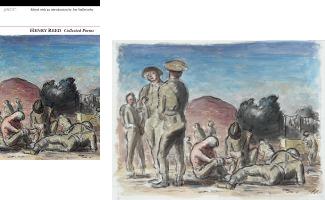
Reed's Collected Poems (left), and "Troops
Resting," by Edward Ardizzone. (1900-1979) was born in Haiphong, in French Indo-China. Educated in England, he took evening classes at the Westminster School of Art while working as a clerk with the Eastern Extension Telegraph Company, eventually becoming a freelance artist and illustrator. He earned recognition through solo exhibitions, and by illustrating for books and popular periodicals.
In 1940, Ardizzone was serving as a Second Lieutenant in an anti-aircraft battery in London when he was appointed an official War Artist by the War Artists Advisory Committee. He tagged along with the British Expeditionary Force through France and Belgium, and served in North Africa. In 1943, he put joined up with the troops invading Sicily, and within a week of the D-Day landings he was in Normandy.
The Imperial War Museum's record for Ardizzone's painting has a modest description which reads like a stanza from Reed's "Judging Distances":
A group of soldiers sit on the ground. One is slumped forward the other is cleaning his rifle. A third has his back to the viewer and is lying stretched out on the ground. To the left of this group some other solders stand around chatting. In the background there is a truck near some trees.
You can view a larger version of " Troops Resting" on the Imperial War Museum's website. (Or, you can query their art collection for "Ardizzone" to see their extensive holdings.) The Museum also has a special exhibition of his sketchbook and war diary. And here's an image search for Ardizzone's work.
|
1534. Reed, Henry. "Radio Drama," Men and Books. Time & Tide 25, no. 17 (22 April 1944): 350-358 (354).
Reed's review of Louis MacNeice's Christopher Columbus: A Radio Play (London: Faber, 1944).
|
This is my favorite thing in a long, long while. Hostess Tricia of the always-saucy Emperor of Ice-Cream Cakes points out that the titles of Dylan Thomas' poems are
ideal for that game where you add the phrase 'in my pants' to the end of a sentence. "Do You Not Father Me (In My Pants)," "Incarnate Devil (In My Pants)," "From Love's First Fever to Her Plague (In My Pants)." The force that through the green fuse drives the flower in my pants!
That's better than singing any of Emily Dickinson's poems to the tune of the theme from "Gilligan's Island."
Go check out Tricia's "First Ever Inaugural Dylan Thomas + Crazy Dick Weeklong Interpretive Extravaganza" pictorial, only just ended ( NSFW):
Chaste and the Chaser, Man With the Cockshut Eye
Into the Weathercocks' Molten Mouths
She Who Was Who I Hold, the Fats and the Flower
The Knobbly Ape that Swings Along His Sex
|
1533. Friend-Periera, F.J. "Four Poets," Some Recent Books, New Review 23, no. 128 (June 1946), 482-484 [482].
A short review calls A Map of Verona more pretentious than C.C. Abbott's The Sand Castle; influenced by Eliot, Auden, MacNeice, and Day Lewis.
|
From Denis Stevens' Monteverdi in Venice (Fairleigh Dickinson University Press, 2001), a facsimile of the billing in Radio Times (of May 27, 1955?) for Reed's radio play, Vincenzo (click to view full size):
Vincenzo, previously.
|
1532. Vallette, Jacques. "Grand-Bretagne," Mercure de France, no. 1001 (1 January 1947): 157-158.
A contemporary French language review of Reed's A Map of Verona.
|
Reeding Lessons loves libraries. We love libraries because they are filled from floor to ceiling with stories waiting to be discovered. Stories like when Henry Reed, upon being presented with a bottle of Mumms Extra Dry, once quipped, " Poor baby." Or that Reed had the seat of his trousers scorched by burning brandy at Louis MacNeice's Birmingham going-away party. Or his reprehensible behavior when in the company of the poet Elizabeth Bishop.
There are still secret stories waiting to be discovered. Reeding Lessons wants to share the love, and we're not afraid to beg. So we're issuing a challenge: help fill in the gaps in our research.
Are you a student, librarian, or just a library geek? Would you like to contribute to continuing scholarship on an overly-anthologized, under-appreciated poet? Want to own a rare piece of Reedsh? Then become a Reeding Lessons Guest Researcher!
Step 1. Visit your library! Track down and locate a primary or secondary source on Henry Reed (1914-1986).
Sources should be original (print, not Internet) journal or newspaper articles, book reviews, poems, encyclopedia entries, book chapters, or excerpts from biographies or other non-fiction. Anything written by Henry Reed, or that mentions Henry Reed. It can be several pages in length, or as short as a single sentence.
Here's a list of "most wanted" items, to get you started. I also collect Reed's appearances in anthologies.
2. Scan (or photocopy and scan) this source into a .pdf document, or image file (.jpg, etc.). Include the title page or table of contents, copyright page, and index entry (as appropriate).
This is important! Including the title and copyright pages makes your research verifiable, and reproducible. This is science, people!
3. E-mail the scan to , before 12:00 am EST, Sunday, April 1st.
For the price of a few photocopies and some footwork, the researcher who e-mails the best item before the deadline will receive, in return, a copy of Reed's The Auction Sale, published as a Greville Press pamphlet in 2006, with an introduction by Professor Jon Stallworthy. The pamphlet is worth £7.50 (about $14.75) and, obviously, you must be willing to provide us with a physical mailing address (free shipping to anywhere IRL!).
We only have one copy of the pamphlet to give away, so:
4. Only the guest researcher who turns up and sends in the most unexpected, colorful, unique, or fantastically interesting source item (as judged by Reeding Lessons) will receive a *free* copy of The Auction Sale.
5. All participants in the Library Challenge, however, will receive credit for their hard work on this blog, with a link to their website (if they would like), and our everlasting respect and undying gratitude.
6. Fine print: We're not sure of the precedent for a project like this, so Reeding Lessons reserves the right to make the rules up as we go along. All decisions will be final. Until we change our minds. Also, We're not at all sure why we issued this challenge in first-person plural. It just sounded more official that way.
If you have comments, questions, or outrage, please feel free to comment below, or send us me an e-mail.
|
1531. Henderson, Philip. "English Poetry Since 1946." British Book News 117 (May 1950), 295.
Reed's A Map of Verona is mentioned in a survey of the previous five years of English poetry.
|
|
|
|
1st lesson:
Reed, Henry
(1914-1986). Born: Birmingham, England, 22 February 1914; died: London, 8
December 1986.
Education: MA, University of Birmingham, 1936. Served: RAOC, 1941-42; Foreign Office, Bletchley Park, 1942-1945.
Freelance writer: BBC Features Department, 1945-1980.
Author of:
A Map of Verona: Poems (1946)
The Novel Since 1939 (1946)
Moby Dick: A Play for Radio from Herman Melville's Novel (1947)
Lessons of the War (1970)
Hilda Tablet and Others: Four Pieces for Radio (1971)
The Streets of Pompeii and Other Plays for Radio (1971)
Collected Poems (1991, 2007)
The Auction Sale (2006)
|
Search:
|
|
|
Recent tags:
|
Posts of note:
|
Archives:
|
Marginalia:
|
|







